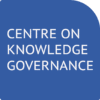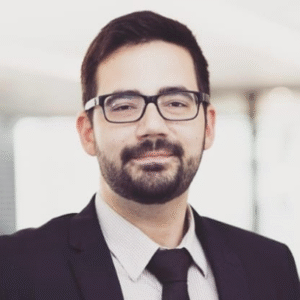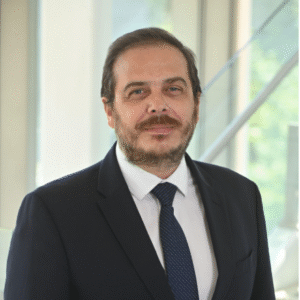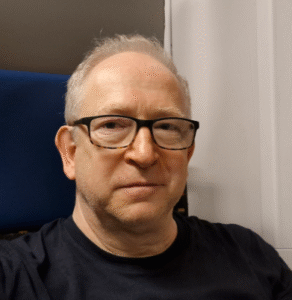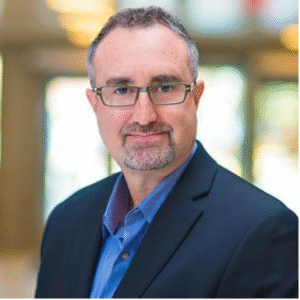In its landmark ruling on 7 May 2025, the Constitutional Court has opened the doors to access to information and accessible formats for people with disabilities. It has also paved the way for South Africa to ratify the 2013 Marrakesh Treaty.
For decades, Blind SA has been lobbying against the ‘book famine’ and lack of provisions for blind and visually impaired persons in the current copyright law. This discrimination has gravely affected their social and economic development, education, work and leisure opportunities and other aspects of their lives, including lack of equal access to reading material that sighted persons have taken for granted. The law has in fact made copying and reuse of copyright work in accessible formats illegal, without permission from rightsholders, essentially criminalising people for needing to access information.
Historical Context: 1999 – 2019
As early as 1999, the library and educational sectors raised concerns at a multi-stakeholder workshop convened by the Department of Trade and Industry (DTI) about the discriminatory nature of the current copyright law against people with disabilities. DTI proposed amendments to the Act in 2000. More restrictive provisions were proposed for education, libraries and archives, and minimal provisions were included for people with visual impairments. A task team mandated by the South African University Vice-Chancellors’ Association of South Africa (SAUVCA) and the Committee of Technikons (CTP), predecessors of University South Africa (USAf), challenged the proposed amendments to the Act in Parliament. These proposals were subsequently withdrawn and not included in the Amended Copyright Act of 2002, which then only addressed needle time for musicians. The task team had already succeeded in stopping more restrictive draft Regulations being passed in 1998.
From 2002 until 2009 there was a legislative impasse with regard to copyright reform. Due to many problems in the music industry, the Department of Trade and Industry decided to commence a process of reform in 2009. It commissioned various research studies and established a Copyright Review Commission to investigate ongoing problems in the music industry. The DTI convened workshops for stakeholder groups and input was given on various aspects of the copyright law. To ensure a holistic approach to the 1978 Act, the DTI was provided with important documents and resources relating to education, libraries and other information services, and persons with disabilities, and other relevant issues sourced from WIPO, WTO, UNESCO, Creative Commons, the International Federation of Library Associations and Institutions (IFLA), Electronic Information for Libraries (EIFL)’s Model Copyright Law, and from regional copyright project findings and local organisations. Appropriate clauses and provisions were also submitted to the DTI relating to countries with progressive copyright laws where developed countries were enjoying benefits that South Africa, a developing country, still did not have in its copyright law.
In July 2015 the DTI published a draft Copyright Amendment Bill for public comment and it was also discussed at a multistakeholder workshop convened by the DTI in Gauteng. After receipt of many submissions and necessary edits and amendments, the Bill was forwarded to Parliament in 2017. The Bill included Section 19D with appropriate provisions for people with disabilities, including those who are blind, deaf, dyslexic or suffer from other disabilities that prevent them from accessing information.
In 2013, South Africa strongly supported the Marrakesh Treaty to Facilitate Access to Published Works for Persons Who Are Blind, Visually Impaired or Otherwise Print Disabled. The Treaty came into effect in 2016, but South Africa did not ratify it, stating that its national copyright law would need to be amended first to include appropriate provisions for people with disabilities. Some years later, it confirmed that once the Copyright Amendment Bill has been signed, it will move to ratify the Treaty.
Parliamentary Approval; Presidential Rejection
The first Parliamentary process took over two years but the Bill was finally passed by both Houses of Parliament in 2019. It was then referred to the President for assent, but he did not act on the Bill for a period of 15 months. The President was being lobbied strongly by rightsholders, collecting societies and multinationals, and was receiving unprecedented pressure from the US Trade Representative’s Office (USTR) and the EU Commission, to stop the Bill. This led him to decide not to sign the Bill and to refer it back for Parliamentary review on 16 June 2020. He requested a review of certain clauses, including fair use, exceptions for education and academic activities, libraries, archives, museum and galleries, and temporary copies, questioning their constitutionality. Notably, these reservations did not include Section19D.
This also led to the Portfolio Committee on Trade and Industry agreeing to send the Bill for retagging from a Section 75 Bill (National) to a Section 76 Bill (Provincial), which resulted in a drawn-out process through all nine Provincial Legislatures.
Blind South Africa Litigation
According to previous commentary, “Recognising that the referral would result in an inordinate delay, Blind SA approached the Gauteng High Court in 2021, primarily seeking to have the Copyright Act declared unconstitutional to the extent that it “limits and/or prevents persons with visual and print disabilities accessing works under copyright that persons without such disabilities are able to access”. Blind SA also sought an order reading in the provisions of the amendment bill that sought to give effect to the Marrakesh Treaty”.[1]
On 7 December 2021, the Gauteng High Court ruled that the current Act is unconstitutional as it relates to people with blind and visual impairments . On 21 September 2022, the Constitutional Court confirmed this ruling and made a landmark decision, marking the first time in its 27-year history that it addressed a copyright law case. The Court recognised that the absence of provisions for accessible formats in copyright law constitutes disability discrimination. This ruling set a global precedent, affirming that copyright law, like any other law, must be interpreted in a way that aligns with constitutional principles, including the rights of people with disabilities. As an interim solution, the Court read-in a temporary provision (Section 13A) into the current Act, allowing for the creation of accessible formats without permission, and suspended the declaration of invalidity for 24 months to allow Parliament to amend the Copyright Act.[2]
After a thorough review and passage through the provincial legislatures, the Bill was passed again on 29 February 2024 and sent to the President for a second time for assent. The approved Bill provides appropriate exceptions for people with disabilities in Section 12D, as well as other relevant exceptions that they (and others) need in their daily lives, e.g. fair use, education and academic activities, temporary copies, provisions for libraries, archives, museums and galleries who provide services and access to knowledge to these communities.
The President again did not sign the Bill by 24 September 2024, resulting in the aforementioned temporary provisions of Section 13A, being rendered invalid. This created a hiatus in the law, making accessible formats for blind and visually impaired people illegal once again, without permission from rightsholders.
After various communications were sent by Blind SA to the Presidency, without a satisfactory result, Section 27, on behalf of Blind SA, announced on 10 October 2024, in a media statement that it “has launched an urgent application in the Constitutional Court against President Cyril Ramaphosa for failing to sign the Copyright Amendment Bill”.[3] Five days later, the President referred the Copyright Amendment Bill, with its sister Performers’ Protection Bill, to the Constitutional Court for a ruling on its constitutionality.
ConCourt ruling in May 2025: Opening the door for access to information, accessible formats and ratification of Marrakesh Treaty
As reported in the press, the Constitutional Court’s ruling on 7 May 2025, “builds on a 2022 ruling and is seen as a crucial step in upholding the rights of people with visual impairments.[4] However, by its inclusion of Section 19D of the Copyright Amendment Bill, it is important to note that the Court’s ruling extends to people with other disabilities, including deafness, dyslexia, learning and other disabilities who have experienced prohibitions or restrictions on access to information without the use of sub-titles and captioning, more visual content, enlarged print, audio description, braille or other accessible formats. Section 19D aims to ensure that people with various disabilities can access and use copyright works in accessible formats without requiring prior copyright permission or paying high fees for conversion of materials. South Africa can now ratify the Marrakesh Treaty, opening the door to cross-border exchange of copyright works in accessible formats.
Christo de Klerk, President of Blind SA, confirmed the Court’s findings as follows:
- Blind SA’s application for direct access to the Constitutional Court was justified and granted.
- Section 19D of the Copyright Amendment Bill replaces the Court crafted Section 13A which will form the legal framework for Government to ratify the Marrakesh Treaty and will remain in effect.
- The reason for Blind SA’s application to the Constitutional Court was a direct result of the President’s failure to do anything after the National Assembly had sent the Bill to him for assent, and his poor communication with Blind SA. He is ordered to pay Blind SA’s costs at the rate of two counsel.
Acknowledging the landmark ruling made by the Constitutional Court, Jace Nair, CEO of Blind SA said “this will allow blind people to have better access to published work so that it can improve our education and access to reading and material and thereby improve our participation in the economy and the country. For the last 20 years we’ve been trying to advocate for the exceptions in legislation.” [5]
Blind SA looks forward to ratification of the Marrakesh Treaty and positive outcomes for the Copyright Amendment Bill and Performers’ Protection Bill in the President’s referral matter that is scheduled to be heard by the Constitutional Court on 21 and 22 May 2025.
[1] https://www.bridgegroup.co.za/blind-sa-v-minister-of-trade-industry-and-competition-and-others
[2] https://journals.co.za/doi/full/10.2989/CCR.2023.0016
[3] https://www.policywatch.co.za/post/two-weeks-on-and-counting
[4] https://www.citizen.co.za/benoni-city-times/news-headlines/local-news/2025/03/24/constitutional-court-upholds-rights-of-blind-and-visually-impaired-people-to-access-copyrighted-works
[5] https://capetimes.co.za/news/2025-05-08-landmark-concourt-victory-for-the-blind/
